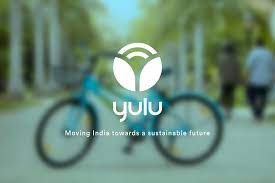
According to the chief executive of the Indian e-bike rental startup Yulu, which is attempting to go public, the company intends to become operationally profitable by September and has plans to increase its presence both in India and beyond.
Over the next 15 months, the firm, which is now active in Bengaluru, Delhi, and Mumbai, will expand to Hyderabad, Pune, Chennai, Kolkata, and Ahmedabad.
Additionally, it would look into joint ventures with regional business owners in smaller markets like Varanasi, Agra, and Goa.
"Yulu is open to give its technology platform to anyone who wants to run a small fleet in cities where we do not have a long-term plan to run it," CEO Amit Gupta told Reuters.
The initiative coincides with a larger government push for the electrification of shared transport, as well at a time when Yulu is relying on partnerships with delivery companies Zomato, Swiggy, and Zepto to fend off competitors like Zypp Electric, which is sponsored by Gogoro, and Ola Electric, which is backed by SoftBank.
More than 50,000 delivery executives used Yulu's services in FY23, the startup claimed in a statement to Reuters, accounting for 60% of fleet utilisation and revenue share.
By the conclusion of the current fiscal year, Yulu hopes to have quadrupled the number of vehicles in its fleet, to 100,000. Yulu was co-founded in 2017 by Gupta, RK Misra, and Naveen Dachuri.
According to a company spokeswoman, the startup's annual losses decreased from 611 million rupees in FY21 to 555 million rupees ($6.8 million) in FY22. He said that the annual figures for FY23 had not yet been made public.
Bajaj Auto, which exports automobiles to more than 70 countries, is the manufacturer of Yulu's bikes. The startup intends to travel the world on the back of the industry veteran.
"The countries looking interesting are the ones where EV is there as a policy" such as Thailand and Indonesia," Gupta said.
(Source:www.nasdaq.com)
Over the next 15 months, the firm, which is now active in Bengaluru, Delhi, and Mumbai, will expand to Hyderabad, Pune, Chennai, Kolkata, and Ahmedabad.
Additionally, it would look into joint ventures with regional business owners in smaller markets like Varanasi, Agra, and Goa.
"Yulu is open to give its technology platform to anyone who wants to run a small fleet in cities where we do not have a long-term plan to run it," CEO Amit Gupta told Reuters.
The initiative coincides with a larger government push for the electrification of shared transport, as well at a time when Yulu is relying on partnerships with delivery companies Zomato, Swiggy, and Zepto to fend off competitors like Zypp Electric, which is sponsored by Gogoro, and Ola Electric, which is backed by SoftBank.
More than 50,000 delivery executives used Yulu's services in FY23, the startup claimed in a statement to Reuters, accounting for 60% of fleet utilisation and revenue share.
By the conclusion of the current fiscal year, Yulu hopes to have quadrupled the number of vehicles in its fleet, to 100,000. Yulu was co-founded in 2017 by Gupta, RK Misra, and Naveen Dachuri.
According to a company spokeswoman, the startup's annual losses decreased from 611 million rupees in FY21 to 555 million rupees ($6.8 million) in FY22. He said that the annual figures for FY23 had not yet been made public.
Bajaj Auto, which exports automobiles to more than 70 countries, is the manufacturer of Yulu's bikes. The startup intends to travel the world on the back of the industry veteran.
"The countries looking interesting are the ones where EV is there as a policy" such as Thailand and Indonesia," Gupta said.
(Source:www.nasdaq.com)














